Title image: CounterSpell © AntoineRen
Solving D&D 5e Counterspell: Every Complaint and Good Fix
Thoughtful Responses and Solutions to All Critiques of D&D 5e's Infamous 3rd Level Spell
Counterspell needs fixing in DnD 5e. It's a "landmine" for any table or campaign.
You WERE enjoying your stroll through the lush, green valley that is D&D 5e. You tricked a shopkeeper, defeated a hag, and didn't get TPK'd by the Giant Rat. It's not perfect, but it's been wonderful: you close your eyes as you run your hands through the TTRPG system's green grass, 'Gladiator style.'
"Click."
But then you look down and to your horror you see that you have triggered a landmine, a relic from past D&D versions: COUNTERSPELL.
It's not a physical mine. It's a 5e rules mine, storytelling mine, and pace-of-game mine. One that leads to frustration, disappointment, and straight up fights throughout the Dungeons and Dragons community.
You look around and notice you aren't alone: a lot of people are stuck on it and looking for a way out. They're digging, tinkering, moving weight... all trying to disarm it in some way. All the methods look promising, but you aren't sure what works for you.
And so the dilemma continues... what to do about Counterspell in DnD 5e?
This particular "land mine experience" comes from the infamous 3rd level spell "Counterspell." Many, many players are frustrated with the spell and are looking for ways to fix it.
I have spent hours reading blog posts, listening to podcasts, and watching videos... all on how "Counterspell is great!" and "Counterspell sucks and here's how to make it better." I've heard every complaint, explanation, and resolution under the sun.
Don't worry; I am not going to blast you with a fire hose of information. I am also not going to just tell you what I think is the "right answer." Because the truth is, people play D&D differently, and different people are going to have different problems with Counterspell, and want different solutions.
I condensed all the solutions in one place so you can discover how to best enjoy Counterspell in your D&D 5e campaigns.
After clarifying the official rules for Counterspell, I'll summarize D&D and show how Counterspell impacts so many elements of what makes D&D great. I am putting every problem/solution in one place, so you can easily and quickly understand the problems you care about and make appropriate corrections.
You don't need to watch a 20 minute video, scour the internet, or rebuild the spell all on your own... just read this post!
Table of Contents
- 5e Counterspell: Rules as Written
- The REAL Issue at Hand With Counterspelling
- Problems and Solutions for 5e Counterspell
- Conclusion
DnD 5e Counterspell Rules as Written
© Wizards of the Coast
But in normal language, here's how 5e Counterspell works:
The DM tries to cast a spell. As they are in the middle of casting, you yell out "I cast Counterspell!" You automatically cancel the DM's spell if it is 3rd level or lower. If it is a higher spell, then the DM has to roll a 10 + whatever level you cast Counterspell at. You can only do this if your character is 60ft or less away.
Here are some important clarifications from frequent misunderstandings:
It is a 3rd level spell that can be upcast and use a higher spell slot.
It requires line of sight.
The person being 5e counterspell-ed does not add their proficiency modifier to their ability check.
According to Xanathar's (p.g. 85), a player can use their reaction to identify a spell by rolling an arcana check against a DC + the spell's level. However, this would use their reaction and prevent them from using Counterspell.
According to the master himself, Jeremy Crawford, a caster can both Counterspell and Counterspell and cast a spell with their action (p.g. 12).
Being a reaction, 5e Counterspell is instant; there should be no table discussion as to whether a player should or should not cast Counterspell, nor should a player have ample time to consider the pros and cons of casting it in that moment.
In Wild Beyond the Witchlight, WOTC has begun to mitigate/"shadowban" Counterspell's effects on monsters by giving them abilities rather than spells.
What Changes Does One DND Counterspell Make?
If you use Unearthed Arcana and One DND, monsters can now use their Legendary Resistance to resist a counterspell. It also forces a CON save, and it does NOT waste a spell slot. Now, it only means the person being counterspelled loses an action.
For more info, check out this reddit thread.
Other Than a Bard, Who Else Can Cast Counterspell?
Wizard and Sorcerer and Warlock classes can choose it as a spell at level 5. But there are other ways to get counterspell too. Eldritch Knight Fighter and Arcane Trickster Rogue subclasses an choose it as a spell at level 13. Oath of the Watchers and Oath of Redemption Paladins can choose the spell at level 9.
Fun fact: despite being one of the classes most associated with the spell, Bards can only select the spell with their "Magical Secrets" class ability at levels 10, 14, and 18.
The Real Issue at Hand With DnD 5e Counterspell

© J.K. Rowling & Warner Bros
Let's be honest about why there is a controversy at all. Aang vs Fire Lord Ozai... Gandalf vs Saruman... Harry vs Voldemort... what do these have in common?
They are WIZARD DUELS. And most players want to be in a wizard duel.
We want spellcasters to face off. Not just hit or miss... but block, counter, have magical energy meet midair DBZ style as they strain to maintain concentration. And Counterspell is the closest thing we have to achieving that.
But we need to ask the hard question: for your table, is it doing that? Is Counterspell allowing cool wizard duels to really happen in your Dungeons and Dragons game?
And if not, what changes can be made? And what are the pros and cons of each change?
Read this basic summary of Dungeons and Dragons. It's not perfect, but it was the best way I could think to structure this blog post, so give me some rope here.
Each underlined section links to a different criticism and response to how Counterspell is used by most 5e tables. Imagine a room full of disgruntled D&D players, each underlined section being a different grumpy person bringing up a different problem with fifth edition Counterspell.
If you don't want to read the whole thing, look at what part of the definition you like and click the link. It will tell you how 5e Counterspell impacts that aspect of D&D. Just please don't post any angry response until you've read all of it!
"(1) Dungeons and Dragons fifth edition
(2) "is a fun, table-top role-playing game where players engage in
(3) cooperative storytelling to experience an
(4) epic adventure.
(5) Dungeon Masters creatively make a world
(6) for players to freely explore and make meaningful decisions.
(7) Players choose from play tested, balanced classes
(8) to create unique characters they role-play.
(9) Some wield weapons, some cast spells
(10) from schools of magic.
(11) Often they get into combat, with
(12) players taking turns, one after another,
(13) with actions and bonus actions,
(Note: Going forward, when I refer to "the Caster" I am speaking of the one casting a spell, while "the Counter" is the one casting Counterspell to thwart the Caster!)
Problems and Solutions for 5e Counterspell
"Dungeons and Dragons Fifth Edition"

Critique: In previous editions of Dungeons and Dragons, there was no Counterspell, just Dispel Magic, and even that was never an auto success. In Pathfinder, as "the Counter" you had to make a "spellcraft check" and it was a free action. If you succeeded, you had to counter their spell with the exact same spell, which you had to A) have prepared ahead of time, B) prepare how many times you would cast it and C) hold your action to counterspell "the Caster."
Response: Wow, that sounds good... but complicated! Fifth edition is a much simpler TTRPG system, designed to be accessible to a new audience. That is why it has less rules, less charts, less mini-games to learn. It teaches fundamentals that can be quickly learned so the game can be enjoyed session 1.
Solution: You can of course return to the complex systems of old! But most people don't want o get away from 5e's beautiful simplicity. So if you want to find a solution that will work for the masses we will need smaller, simple changes (hence this post).
"... [D&D] is fun..."
Critique: No one has fun when they are the Caster! Of course, when you are the Counter it feels amazing: you stopped a powerful spell caster dead in their tracks! But when you are the Caster, it feels like a discouraging "no fun button" people hit right when you were getting excited.
Response: It is always unfortunate when someone isn't having fun. However, in a cooperative game, that is something unavoidable: an individual's enjoyment is periodically sacrificed so everyone can have fun together. Even if we were to become the best D&D players ever, there are always going to be rules, situations, and even player interactions that make the game less fun.
Solution: Players and DMs need to remind one another that you are not trying to beat one another... it is not your character vs the world. After all, you are still spending you free time to have a fun time! So if you are not having fun, begin a conversation with your DM about what changes should be made.

© Middle-earth Enterprises
"...Cooperative STORYTELLING..."
Critique: A huge part of storytelling is the building and releasing of tension. But with Counterspell, that doesn't happen. Any spell 3rd or lower is automatically canceled and any spell can be automatically canceled if Counterspell is upcast. There is no tension in whether or not Counterspell will succeed, which makes for a bad story and adventure.
Response: I see your point, but this is often a problem of players and DMs not role-playing rather than something built into the rules.
Solution: First of all, DMs must remember that it is their job to craft the actions into a story, not just arbitrate the rules. So if Counterspell is cast, rather than just stating what happens, fold it into the narrative. That said, here are some changes you can make to Counterspell to help it contribute to storytelling:
---- A) Remove the auto success part of Counterspell and have the counter always roll.
---- B) Or, have both Caster and Counter roll, adding their proficiency bonus and ability modifier.
---- C) Or, have the Caster make a CON save any time someone Counterspells them.
"...Epic adventure..."

Critique: Part of what makes D&D special is how epic everything is. Battles against monsters, powerful spells being cast, all strung together for cinematic moments. Counterspell, as written, does none of that. It's just cast and the Counter gets to be all smug and say something like "Aha!" or "Gotchya!"
Response: Sounds like your table is full of lazy players and DMs! The mechanics are only partially responsible for the epicness of your adventure... you need to role-play your combat, not just your social interactions.
Solution: No one is saying you should only say "Counterspell" and move on! Sly Flourish is right: role-play your reaction! Describe what your character sees, what they fear will happen if they don't stop the spell. And don't be afraid to get creative with your descriptions of how the spell fails: maybe a magical bond covers their hands briefly or a loud noise distracts the Caster and breaks the spell. You can make Counterspell awesome with just your description!
"Dungeon Masters creatively make a world..."
Critique: Just like Dispel Magic, Counterspell turns thoughtful, creative, fun encounters and immediately makes them a walk in the park for the party. Not only that, but Counterspell is the solution for ANY big, bad, scary spell... it requires no creativity from the players!
Response: Lots of spells do that: Fly ruins chasm puzzles and high walls, Greater Invisibility ruins stealth, Alarm makes it borderline impossible to surprise your party. And concerning players, the Counter has to position themselves in the right place and make sure they can see the Caster in order to stop their friend from being utterly obliterated or charmed or whatever... that is plenty of strategy and creativity!
Solution: None! Once the party reaches 5th level, DMs have to plan for them to use Counterspell in their encounters.
"...For players to freely explore and make decisions..."
Critique: Counterspell commits one of the moral sins of Dungeons and Dragons... taking away player agency. When you Counterspell someone, you basically tell them "you don't get to do that... and instead you also get to do nothing." It is a frustrating experience that causes the Caster to disengage from the story and game.
Response: It is true that player agency (and DM agency) should be protected whenever possible, but Counterspell is being unfairly picked on. What about spells like "Silence," "Blindness/Deafness," and "Hold Person," all of which stop a spellcaster? And what about conditions: paralysis, petrified, stunned...? All of these not only take away multiple turns, but some even shut down role-playing all together! But we have expectations for what magic can do that results in these necessary outcomes.
Solution: JorPHdan suggests that if you are Counterspelled you do not lose an action. Rather, you lose a spell slot, and can cast a cantrip (or low level spell).
"Players choose from play-tested, balanced classes..."

Critique: Counterspell is overpowered. It automatically blocks spells 3rd level or lower, and a 5th level silly bard still has a 30% chance of blocking a 9th level spell of a 20th level grand master wizard. No other spell or martial ability allows low level players to make that big of an impact on the game.
Response: This is a good point, but might prove the need for Counterspell instead! Many can point to examples where Counterspell is single handedly responsible for saving a party member's life or saving the lives of the entire party! It's the only defense against deadly, high level spells, and one of the key tools a band of misfit adventurers has to save the world against a great evil!
Solution: Make Counterspell less successful when cast at 3rd level against higher spells, but still successful when upcast. The Dungeon Coach suggests having the spellcasters roll against each other and adding a +1 to the Caster and a -1 to the Counter for every level of difference between the spells. (EX: Counterspell at 5th level and Meteor Swarm at 9th will result in a +4 roller to the Caster and a -4 roll modifier to the Counter).
"...Unique, one-of-a-kind characters they role-play..."
Critique: Counterspell is way too good to pass up. As soon as it is available, a spellcaster should take it. This creates similar, not distinct or different, spellcasters.
Response: So many spells suffer the same problem. Healing Word, Fireball, Invisibility, Fly, Dispel Magic, Identify, Revivify... these are spells that someone, ANYONE, in the party must have if the party is going to successfully adventure.
Solution: Allow players to Counterspell with any spell of a similar level (i.e. counter fire with fire or ice or water). Have the two casters roll against one another, using their ability modifier and proficiency bonus. No matter what, both lose the spell slot.

© Nickelodeon
"Some wield weapons, some cast spells..."
Critique: Counterspell is too extreme, being crazy successful or doesn't impact the game at all. It can also completely change an encounter, even though it is a 3rd level spell.
Response: This is just part of having a wide variety of spells: some impact to varying degrees while others "save or suck" like Banishment or Hypnotic Pattern.
Solution: (none).
"...From schools of magic."
Critique: Counterspell, and especially Counterspelling a Counterspell, is just spellcasters burning spells slots without actually doing anything. They are wasting spells lots to keep someone else from playing the game. When it happens, nothing happens.
Response: Not all spells are for combat and not all combat spells are offensive! Counterspell belongs to the "Abjuration" school of magic. Unlike divine healing, which makes up for damage taken, abjuration prevents that damage from happening in the first place. Is "Shield" also a bad spell because it prevents an offensive spell from doing damage? What about "Globe of Invulnerability"?
Solution: None are necessary, but one option is to make only similar schools of magic able to counter one another. Divine counters divine... arcane counters arcane... nature counters nature... pact counters pact. That way we have all sorts of casters, all having access to Counterspell, but in their own unique ways.
"...But often they get into combat."

Critique: D&D has always been a hybrid between role-playing and war gaming. In war gaming, there are clear rules players must follow when they strategize. The official rules for Counterspell are too uncertain.
Players are NOT supposed to know what spells or what level a spell is being cast before they announce they are casting Counterspell. And when players and DMs are thinking strategically, there is a ton of incentive to increase the level of the Counterspell to cause the Caster to automatically fail, or for the Caster to change what spell they were going to cast as soon as they know they are gonna get Counterspelled, so that he Counter wastes their slot.
Response: Counterspell actually does not create this problems, just DMs and players playing too quickly. Furthermore, players and DMs should be honest! Sounds like you have a bigger problem with dishonesty and cheating one another in a game where everyone is supposed to be cooperative!
Solution: Have the Caster announce they are casting a spell and give the Counter a chance o determine if they will Counterspell (creates more problems... see below).
"...Players take turns, one after another..."
Critique (a counter response to the previous response): "Too quickly?!?!? Combat moves slooooooooooowly in D&D 5e... at high levels, a single combat can take over 3 hours!
For Counterspell to work as written in the rules, the Caster would have to announce "I am going to cast a spell, would anyone like to Counterspell?" and then there would be a pause, and then the Counter would have to decide if it's worth it, and then they would need to roll. Then, if the roll is unsuccessful, the Caster would finally get to cast his spell... and that would repeat every time someone has to cast a spell! We don't need a mechanic like this slowing down play even more."
Response: The only reason you have such secrecy is because you are worried about players cheating... why would friends want to cheat their friends? D&D is not about beating one another through the rules, but telling a story. That means everyone needs to feel the flow of the game. Players can sense, based on the description, if its worth Counterspelling or can tell based on the state of the party when is a good time to Counterspell. Its about good story moments rather than analytics...
Solution: A) (Changing the Xanathar's Guide rule to free action) Before someone can Counterspell, they first take a free action to make an arcana check, which will allow them to know not only what spell is being cast but also what level it is being cast at. Then they can counter the spell with their action.
B) If they have the spell prepared, or in their spell book, they get a +2 to their check.
"...Actions as well as bonus actions..."
Critique: Counterspell messes with the action economy and that is no small thing. In D&D, the quality encounter is dependent on having a balance between actions, bonus actions, and reactions. Counterspell is the only example of someone using their reaction to CANCEL someone else's action. Not only that, but then their turn, they ALSO get an action!
Response: Yes... it is a super powerful response... and that does mess with the action economy... but hat is what makes it fun! It is fun to thwart a powerful spellcaster!
Solution: If a spellcaster uses Counterspell as a reaction, they can only take a bonus action and/or cast a cantrip on their turn.
"...And reactions, until the combat is resolved." (Answering "Can I counterspell a counterspell?")
Critique: It is dumb that you can Counterspell a Counterspell... that you can "react to a reaction."
Of course, you could counter a ritual, an action, or a bonus action... all of those take time to cast. And you could use your action to Dispel Magic the magic of a reaction (like the reaction spells Featherfall or Shield), but we are not talking about countering the magical effects. When Counterspell happens, there is no lingering magical effects, it just stops a spell from happening.
In the same way, how could you Counterspell Hellish Rebuke or Misty Step? These just happen... by the time you know what is happening, they are done. There is nothing left to counter.
But what if you are seeing a spellcaster and predicting that they will cast Counterspell? Still problematic. Reactions are a response to stimulus, you need to be able to see something happening, register it in your brain, understand it, know what to do, and do it. That is why there are reactions to actions: actions take 6 seconds, reactions are instant. It's the flick of a wand or twitch in a staff. Your brain could not process something that quick and counter it with your own instant movement.
Yet, according to the rules as written, if you had 1,000 spellcasters on two sides, Counterspelling each other's Counterspell one after another, you could have them all managing to react to one another within a 6 second span, something that would be impossible for even 10 humanoids to do.
In short: Counterspelling a Counterspell is unbelievably stupid.
Response: But the rules allow it... and... and... it's the closest thing we have to a wizard battle, so... we gotta keep it...
Solution: Change the rule. I know it is officially legal... but, honestly, it is indefensible. If you want a wizard's duel, click the link to checkout our Spell Duel homebrew mechanics, where to spellcasters can sling spells just as you imagine!
Conclusion: Which 5e Counterspell Change Will You Suggest to Your DM?

As you can see, the vast majority of "problems" with Counterspell aren't with Counterspell specifically, but are A) a matter of preference or B) more about the mechanics of Dungeons and Dragons fifth edition. Counterspell is just the obvious poster child for a slew of problems that come with a limited, simple TTRPG system.
But just because D&D 5e has flaws doesn't mean it is bad! It also doesn't mean you cannot homebrew corrections that fit your play style. One commenter mentioned how after repeatedly trying to improve Counterspell, they just got rid of it and the games have worked great ever since.
And of course, there are other, more complex solutions. Why not make Counterspell a feat that any spellcasting class could take? Or make it an ability that every spellcaster gets at a certain level and can use once or twice during a long or short rest?
But personally, I think the problem is that as simple as D&D 5e is, it needs some dueling rules.
And I think this applies to both magical and martial duels. Duels are storytelling in and over themselves, and sometimes you want something full of tension and uncertainty, role-playing, and strategy, something more than a roll to attack against a DC, or just upcasting Counterspell and saying "no."
By Riley Rath - Freelance DnD Copywriter

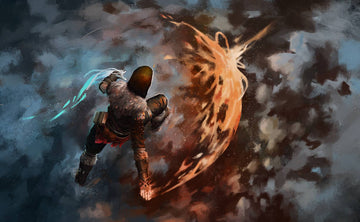

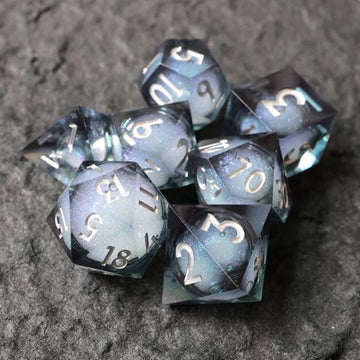
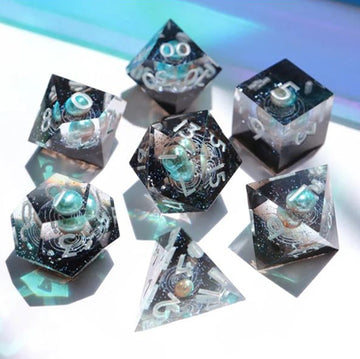
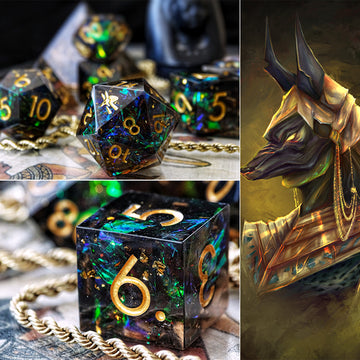
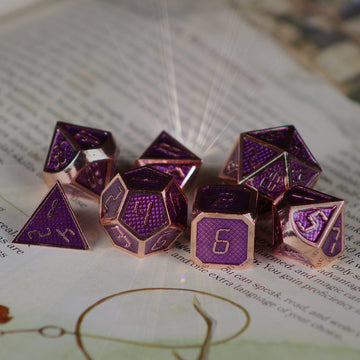
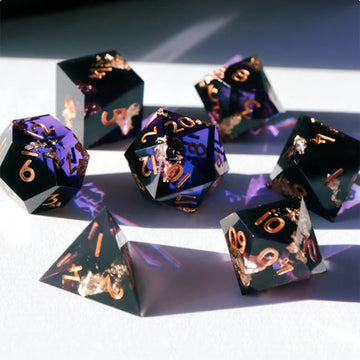
“The person being 5e counterspell-ed does not add their proficiency modifier to their ability check.” – yes, because they are not rolling a check. The counterspell caster does…
I love the idea of counter spelling a spell with the opposite type (fire/water etc.). Or even counter spelling with the same type and created some area of effect explosion in the middle of the two casters.